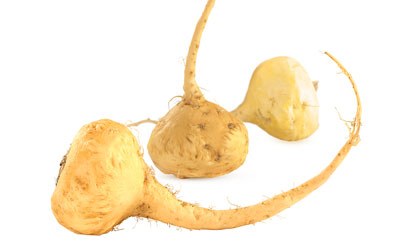Sexual dysfunction is a frequent side effect of antidepressants, affecting more than half of patients with mood and anxiety disorders taking SSRIs or SNRIs, and is associated with a negative impact on quality of life, self-esteem, mood, and relationships. Because of this, it is not uncommon for patients to discontinue taking medicine, which imperils their mental health. Any phase of the sexual experience may be affected, including libido, arousal, and orgasm.
For postmenopausal women specifically, there are few treatments available for sexual dysfunction, and none that are approved by the FDA. Maca, a traditional South American plant used to enhance fertility and balance hormone levels, is similarly lacking on studies conducted in humans, let alone women, but has shown promise for improving sexual functioning.1
The Study
A group of 45 women between the ages of 18 and 65 who were currently suffering from antidepressant-induced sexual dysfunction for at least four weeks took 3.0 g of approved maca root or placebo daily for 12 weeks. Among other qualifications, the women had to have been in remission from any depressive or anxiety disorder, and needed to be participating in some form of regular sexual activity before antidepressant use, as well as during the study.
Patients were assessed on the degree and improvement of antidepressant-induced sexual dysfunction, including its various areas (i.e., arousal, orgasm, and satisfaction) using questionnaires commonly employed in research on sexual function. Their depressive, anxious, and other clinical symptoms were monitored throughout the study, and they received psychological and physical healthcare throughout and after the study.
The Results
Patients in the maca group showed higher remission rates than the placebo group for sexual dysfunction, especially in postmenopausal women. In fact, the higher the age, the greater the correlation to improved sexual functioning. In these women, maca was shown to improve orgasm and arousal. Additionally, maca showed little to no adverse side effects. The researchers also observed that there is likely a link between maca and improved testosterone levels.
What Does This Mean?
In this study, maca showed itself to be a great potential herbal remedy for antidepressant-induced sexual dysfunction, especially for postmenopausal women. This age bracket is especially devoid of approved treatments for sexual dysfunction - a fact made all the more alarming by the far-reaching, adverse effects that sexual dysfunction can have. Maca root will appeal to those looking for herbal alternatives, shows particular efficacy in the domain of orgasm, and is well-tolerated in terms of side effects - all reasons to continue this exciting research.
Sources
- Evidence-based Complementary and Alternative Medicine, A Double-Blind Placebo-Controlled Trial of Maca Root as Treatment for Antidepressant-Induced Sexual Dysfunction in Women, 2015
Footnotes:
- Reproductive Medicine and Biology. (2019). Effect of Lepidium meyenii on in vitro fertilization via improvement in acrosome reaction and motility of mouse and human sperm. Retrieved November 29, 2021 from https://www.ncbi.nlm.nih.gov/pmc/articles/PMC6332831/







